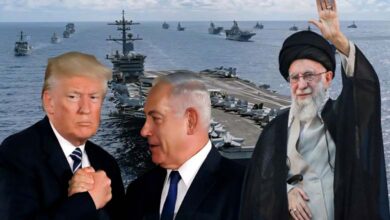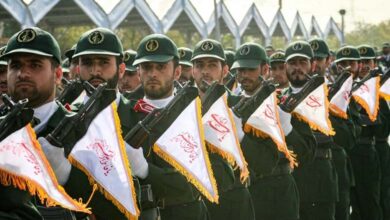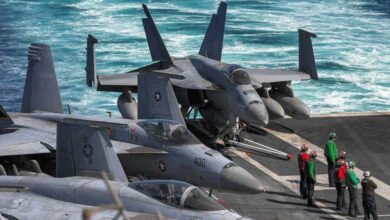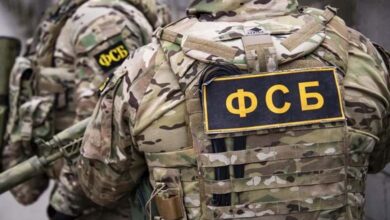The Ukraine War drains Russian resources and affects its influence in the Mediterranean
Without achieving a complete victory in Ukraine, it is likely that Russia's influence in the Black Sea, the Mediterranean, and the Middle East will decline over time
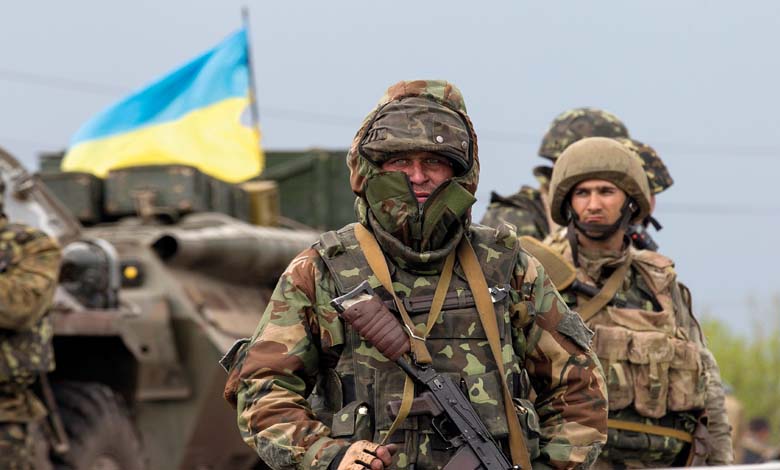
Moscow is keen to ensure its interests and influence in the Eastern Mediterranean basin, according to a permanent presence strategy that involves imposing its presence on the international scene, reinforcing its influence, and its military role in the region compared to the role played by the West, which largely depends on the outcome of the Russian war in Ukraine.
An article published by the Russian newspaper “Novaya Gazeta” affirmed that there is a definite link between the results of the Russian war in Ukraine and the continuity of Russian influence in Libya and the Mediterranean region, suggesting that Moscow might apply the same strategy it follows in Libya to other regions where it seeks to establish a presence in the Eastern Mediterranean.
Ghaleb Dalay, a researcher at the British “Chatham House” Institute, stated that “the Russian naval presence in Libya and the Eastern Mediterranean depends on the strength of the fleet in the Black Sea, and that is why the war in Ukraine, which is depleting Russian resources, will have a multiplying effect.”
President Vladimir Putin managed to establish a strong presence in the Eastern Mediterranean thanks to his control over the Black Sea, enabling him to move assets between the two regions. Consequently, the two regions have merged into a unified geopolitical space with increasingly intertwined security dynamics.
The author emphasizes that Moscow is determined to redefine its role in the Eastern Mediterranean and the Black Sea region, especially as the war in Ukraine has undermined its ability to project influence. While the Kremlin has largely maintained its role in regional politics and its relations with Middle Eastern leaders, which it considers a manifestation of its status as a great power, the ongoing conflict in Ukraine, along with the war in Gaza, could ultimately change Russia’s position.
He estimated that without a complete victory in Ukraine, it is likely that Russia’s influence in the Black Sea, the Mediterranean, and the Middle East will decline over time. He assumed that the Kremlin might generalize the strategy it applies in Libya to other regions where it seeks to enhance its influence in the Middle East and Africa, a low-cost strategy with a significant strategic impact.
Before the full-scale invasion of Ukraine in February 2022, the Middle East and North Africa had become the second most important market for Russian arms. Russia had re-emerged as one of the world’s largest arms exporters, second only to the United States.
However, the war in Ukraine has forced the Russian military industry to focus mainly on the needs of the war rather than exporting weapons to its allies. Given that Russia’s military presence and influence in the Mediterranean depend on the strength of its fleet in the Black Sea, the repercussions of the war in Ukraine will have a multiplying effect on Moscow’s influence and status in the Mediterranean and the Middle East in the near future.
The war in Ukraine has disrupted nearly a third of Russia’s warships in the Black Sea. Additionally, since Turkey closed the Bosphorus and Dardanelles straits to warships in February 2022, the Kremlin has been unable to rotate naval assets between the two regions.
Russia managed to change the balance of power in the Black Sea, bolster its influence in the Western Balkans and the South Caucasus in 2014 after the annexation of the strategically important Crimea. This came after it took control of the Georgian secessionist Abkhazia following a short war in 2008, enabling it to control nearly two-thirds of Georgia’s Black Sea coast.
Since then, the Kremlin has worked on upgrading the naval base in the port of Tartus in Syria to accommodate larger military ships and expanding the Hmeimim airbase in Latakia. Then, it sought to reinforce its influence in the Al-Jufra base in Libya, turning it into a major launching point for its operations in Africa.
Putin‘s vision of restoring Russia’s position as a global power has long depended on dominating the Black Sea and exerting influence in the Mediterranean and the Middle East. Putin may have achieved significant success in the years leading up to the full-scale war on Ukraine in 2022.
Russia continued to focus on arms sales in the Middle East, competing with the traditionally dominant sales from the West. In February 2021, the “Russian Federal Service for Military-Technical Cooperation” stated that military exports to the Middle East amounted to about $6 billion annually over the past five years, or between 40 and 50 percent of total military exports. Russia also emerged as the largest arms supplier to Algeria by 2021 – notably by providing it with some of its most advanced systems, such as fighter jets, including the Su-57.
-
After the Escalation of the Russian-Ukrainian Conflict: Major Global Food Crisis Looms
-
Washington strengthens its presence in northern Syria to counter Russian influence
After the invasion of Ukraine, reports citing U.S. government officials indicated that Russian arms supplies were constrained by sanctions, export controls, and banning Russia from using the “SWIFT” payment system, and focused on supporting its forces in Ukraine. In reality, officials in the Middle East secretly expressed concerns at the beginning of the invasion of Ukraine that Russia would not be able to fulfill existing contracts. Two years later, these fears were confirmed after the Russian military suffered a crushing defeat at the hands of the Ukrainians, forcing the Russian arms industry to concentrate its full attention on maintaining and reorganizing its forces in Ukraine.


